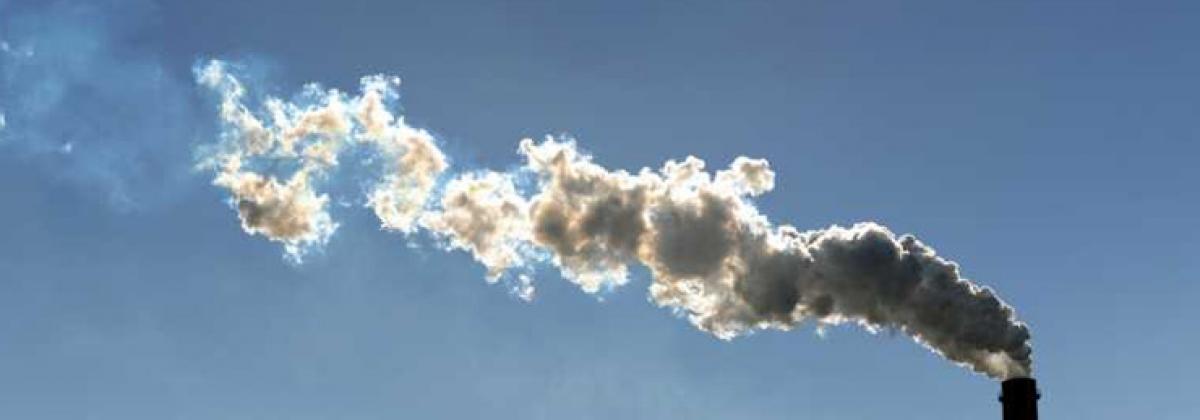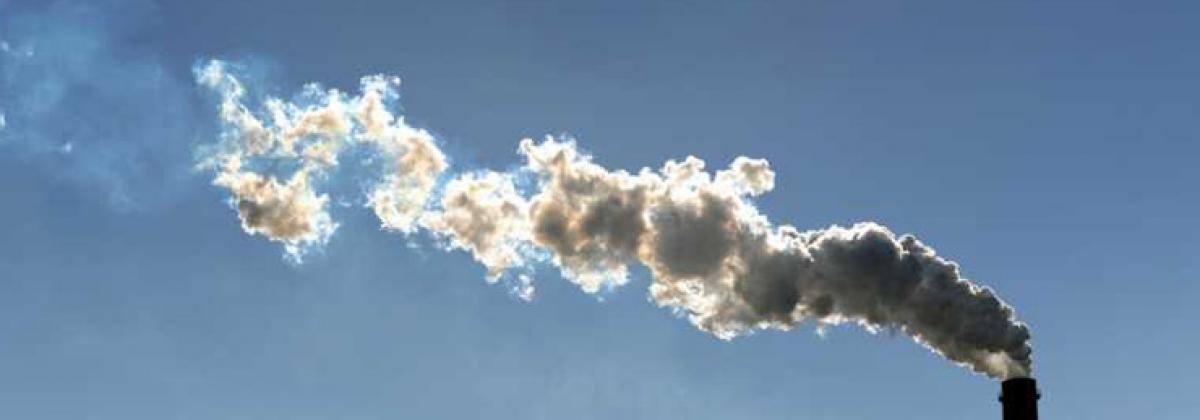Live
- Over 7,600 Syrians return from Turkiye in five days after Assad's downfall: minister
- Delhi BJP leaders stay overnight in 1,194 slum clusters
- Keerthy Suresh and Anthony Thattil Tie the Knot in a Christian Ceremony
- AAP, BJP making false promises to slum dwellers for votes: Delhi Congress
- 'Vere Level Office' Review: A Refreshing Take on Corporate Life with Humor and Heart
- Libya's oil company declares force majeure at key refinery following clashes
- Illegal Rohingyas: BJP seeks Assembly session to implement NRC in Delhi
- Philippines orders full evacuation amid possible volcanic re-eruption
- Government Prioritizes Welfare of the Poor, says Dola Sri Bala Veeranjaneyaswamy
- Two Russian oil tankers with 29 on board damaged due to bad weather
Just In

x
Highlights
India on Friday pledged to cut its emission levels by 33-35 percent over the next 15 years in what it has termed as a fair and balanced commitment to protect the environment, based also on its own agenda for economic development.
India on Friday pledged to cut its emission levels by 33-35 percent over the next 15 years in what it has termed as a fair and balanced commitment to protect the environment, based also on its own agenda for economic development.

Ahead of the crucial, 21st meeting of the Conference of Parties under the United Nations Framework Convention on Climate Change due in Paris from November 30 to December 11, India made a 38-page submission under what is called the Intended Nationally Determined Contributions (INDCs).
The submissions, called from the 196 parties (or countries) under the framework, is to serve as the basis for negotiating an agreement that will lay the path for a low-carbon, climate-resilient future. Thus far, 120 countries, collectively accounting for 85.3 percent of global emissions, have made submissions.
"Through this submission, India intends to reduce the emissions intensity of its GDP by 33-35 percent by 2030 from 2005 level. This commitment is further echoed in India's actions in climate change adaptation with setting up its own 'National Adaptation Fund'," said New Delhi's 38-page document.
"India's Intended Nationally Determined Contributions is fair and ambitious considering the fact that India is attempting to work towards low carbon emission pathway while endeavouring to meet all the developmental challenges the country faces today."
The submission said the country's current policy framework also includes a favourable environment for a rapid increase in renewable energy, move towards low carbon sustainable development and adapting to the impacts of climate change -- the highest possible efforts as evident from its multiple initiatives.
"Accordingly, India's development plans will continue to lay a balanced emphasis on economic development and environment," it said, recounting the framework's mandate based on the principles of equity, as also common but differentiated responsibilities and respective capabilities of the member nations.
The paper submitted by India, coinciding with Mahatma Gandhi's birth anniversary, is based on the 1992 Kyoto convention and says that both in terms of cumulative global emissions and per capita emission, it has caused much less damage to environment but its actions to mitigate climate change were fair and ambitious.
"Much before the climate change debate began, Mahatma Gandhi, regarded as the father of our nation had said that we should act as 'trustees' and use natural resources wisely as it is our moral responsibility to ensure that we bequeath to the future generations a healthy planet," the document said.
The issue of climate change, ahead of the Paris conference, has been high on the Indian government's agenda. During his visit to the US last month, this was the key point of discussions which Prime Minister Narendra Modi had when he met with the leaderships of several countries, notably the US, the UK, France, Japan and Germany.
India has also outlined in its document the impact of climate change on its economy and nation as a whole.
It said the country will need $206 billion between 2015 and 2030 to implement actions in agriculture, forestry, fisheries infrastructure, water resources and ecosystems to achieve the targets, not counting the additional investments needed to strengthen resilience and disaster management.
Quoting an Asian Development Bank study, it said the approximate adaptation cost for India in energy sector alone would roughly about $7.7 billion in 2030s, while the economic damage and losses to the country from climate change to be around 1.8 percent of its GDP annually by 2050.
"Mitigation requirements are even more enormous. Estimates by Niti Aayog (National Institution for Transforming India) indicate that the mitigation activities for moderate low carbon development would cost around $834 billion till 2030 at 2011 prices," it said.
The paper said the efforts thus on combating climate change has been self-financed.
"However, our efforts to avoid emissions during our development process are also tied to the availability and level of international financing and technology transfer, since India still faces complex developmental challenges," it said.

Next Story
More Stories
ADVERTISEMENT
© 2024 Hyderabad Media House Limited/The Hans India. All rights reserved. Powered by hocalwire.com







